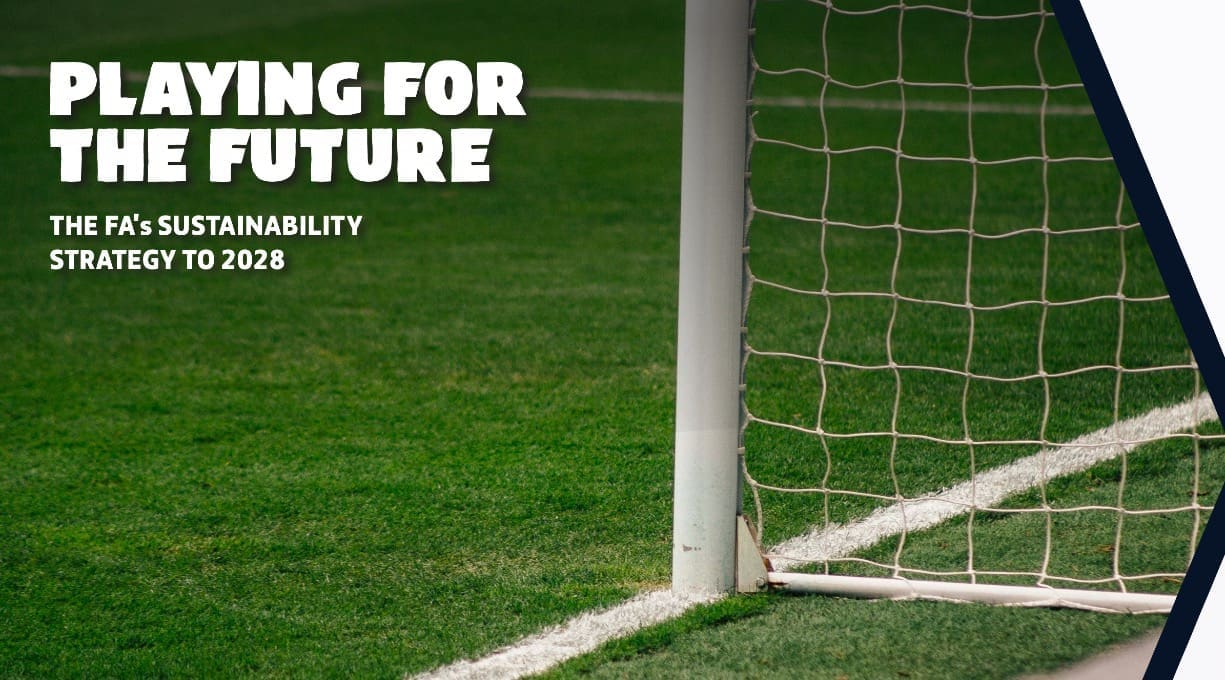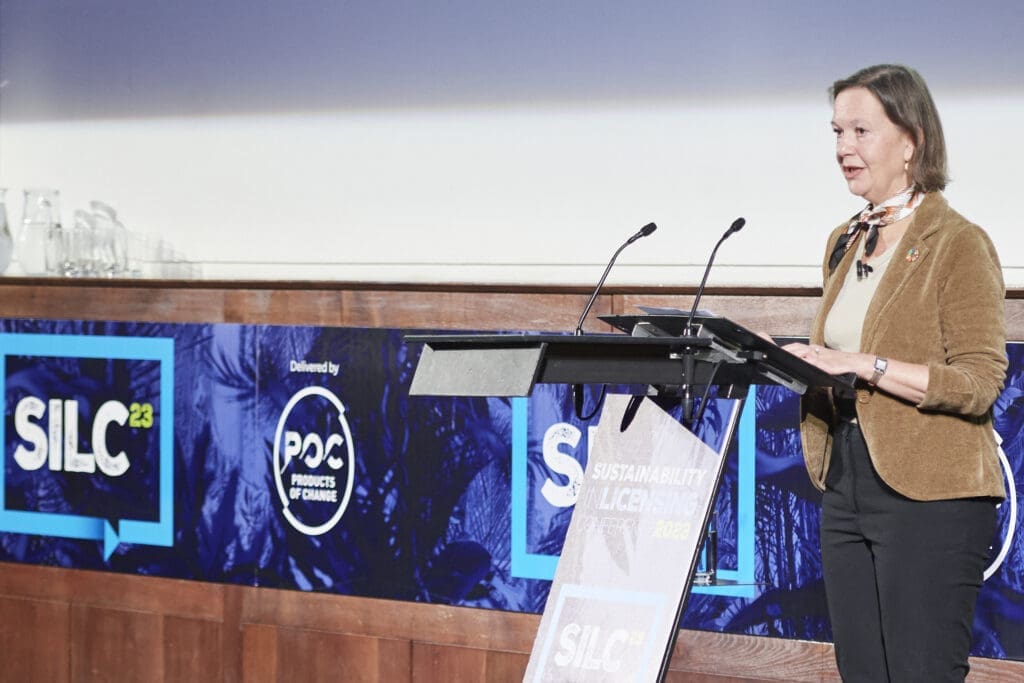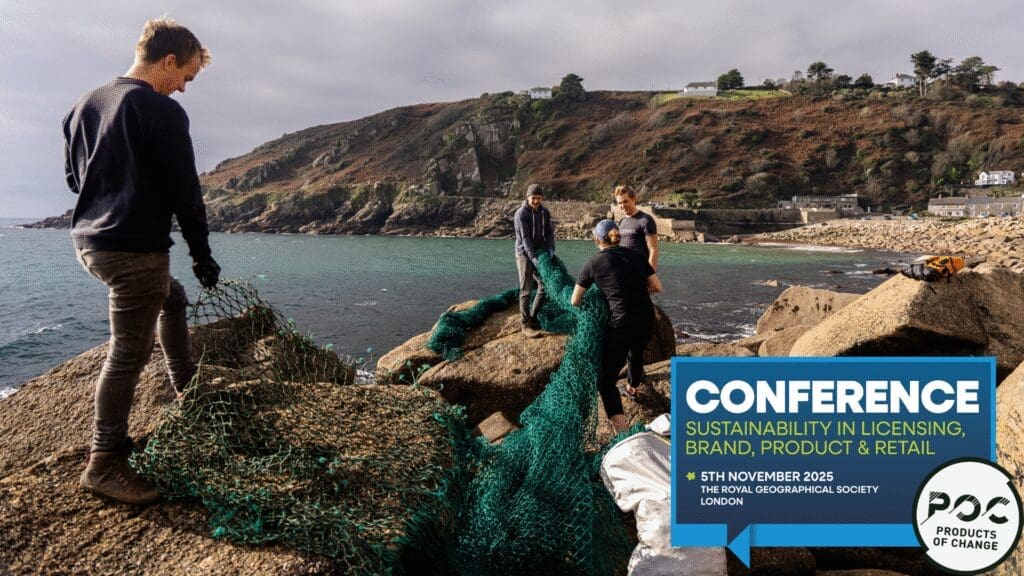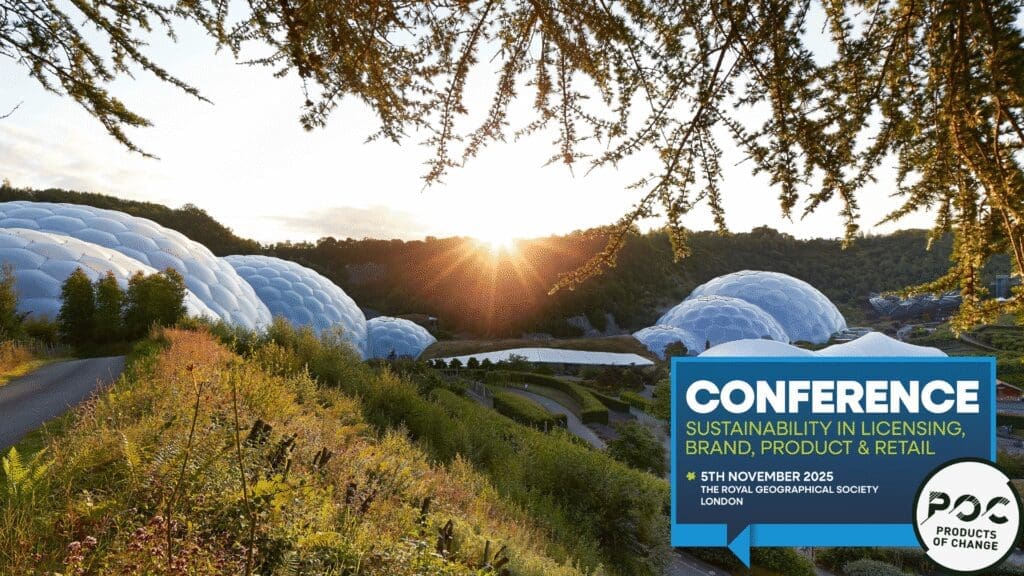The Football Association unveiled a brand new strategy last week to make a positive impact on the environment by driving biodiversity across its venues and taking a new, more responsible approach to merchandise and team kits.
Revealed in its Playing for the Future sustainability strategy, the FA has outlined its five-year sustainability plan to drive its environmental ambitions until 2028 and ‘continue to be a role model in shaping a positive football future for all.’
Alongside rewilding efforts to be introduced to Sunday league football pitches and a move to step up efforts such as recyclability of products and merchandise, the plan – drawn up through extensive consultation with a range of football stakeholders and environmental experts – will focus across three core areas.
Shoot for Net Zero will be The FA’s mission to fight climate change and reduce emissions by achieving net zero status by 2040. The Association plans to invest over £35m to deliver the ambition as it works towards reducing CO2e emissions by 50% by 2030 from its 2019 baseline, reduce electricity consumption by 30% by 2028, and reduce gas consumption by 20% by 2028.
Under its ‘Save our Resources’ pillar, the FA will reduce resource consumption at its famous Wembley Stadium and St. George’s Park. It will also look to minimise the impact of waste through procurement choices, avoiding waste, identifying reuse opportunities, and maximising recyclability.
The organisation has also drawn up a plan to protect biodiversity across all FA venues, enhancing habitats for animals, wildlife, plants, and micro-organisms.
Its third pillar, Make an Impact will then work to deliver and govern change across football, using the FA’s position to drive wider environmental and societal change across clubs, leagues, and with partners.
Mark Bullingham, the FA’s chief executive, said: “The climate crisis presents one of the most significant challenges of our lifetime, and we are determined to play our part in inspiring positive and meaningful change.
“Through our new five-year commitment, we want to make tangible progress through our own sustainability initiatives, while raising awareness and bringing the wider football community with us on this journey.
“We look forward to working with the leagues, clubs, County FAs, and our partners to harness the unique power of football so that together we can have a beneficial impact on the planet and a positive influence for future generations.”
Ruaidhri Dunn, the FA’s head of procurement and sustainability, added: “We are delighted to launch our new five-year Playing for the Future sustainability strategy. We are very proud of our achievements in recent years to become more environmentally friendly, including Wembley Stadium being awarded the highest standard of sustainability by the ISO, however we want to make further progress.
Our new strategy focuses on a number of key areas including reducing emissions, optimising resource consumption, plus governing and supporting wider change across football – and we look forward to driving forward with the next phase of our sustainability efforts.”




